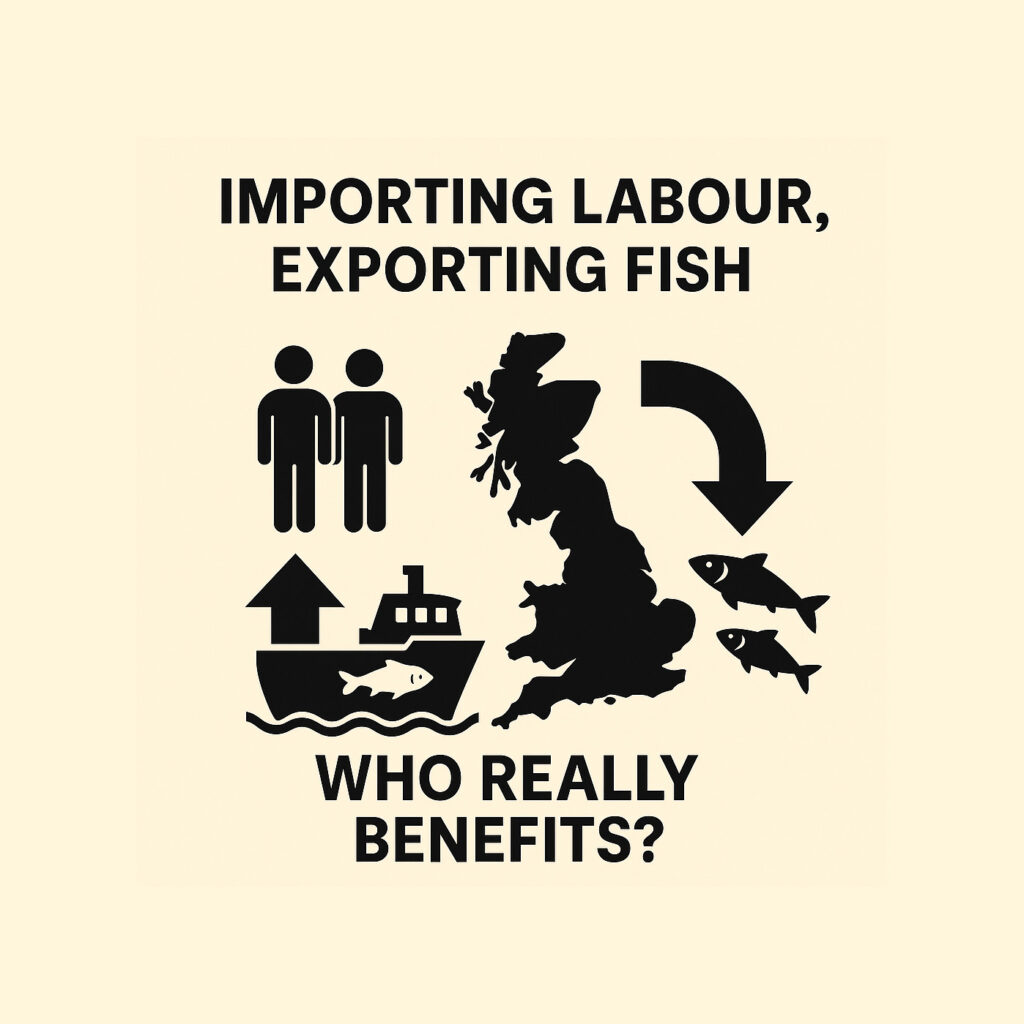The UK commercial fishing industry often claims it is a cornerstone of food security and vital to supporting coastal communities. But when you dig beneath the surface, a very different story emerges, one of exporting valuable resources, importing cheap labour, and leaving coastal communities out of the picture.
Exporting Our Fish
According to Seafish, a staggering 60–80% of fish caught by UK vessels is shipped abroad. This means most fish caught commercially in our waters aren’t feeding local families or supporting local food security, they’re heading overseas, fetching higher prices in international markets. Meanwhile, the UK imports nearly twice the amount of seafood it exports, creating an economic paradox where fresh, local catches bypass UK tables entirely.
Importing The Labour
Recent debates within the All-Party Parliamentary Group for Fisheries highlight an uncomfortable reality: the commercial fishing industry’s reliance on migrant labour. The sector openly pushes to relax immigration rules to ensure a steady influx of cheap, imported workers, essential for processing fish destined for export. Rather than creating stable, well-paid local jobs, the model ensures wages remain low, labour precarious, and benefits firmly resting with a select few shareholders.
Who Really Benefits Coastal Communities?
Fishing towns and villages are repeatedly assured that commercial fishing brings economic vitality. Yet, the reality is often starkly different. Export-driven fishing leaves local markets depleted and prices inflated, as international buyers compete with local consumers. Local jobs promised by the industry frequently fail to materialise, displaced instead by imported, lower-cost labour.
In contrast, recreational fishing keeps 100% of its catch in the UK for personal consumption. This approach supports local tourism, sustains healthy fish populations, and ensures fish stocks remain accessible for local communities.
Rethinking Food Security
Real food security means reliable, affordable access to locally caught fish, not exporting prime catches and re-importing seafood at inflated costs. The current commercial model prioritises profits through exports at the expense of local food resilience. It benefits volume fisheries and shareholders over more selective inshore smaller boats who are selling direct to local communities.
A Call for Change
If the UK genuinely wants to support its coastal communities and strengthen national food security, it needs to fundamentally rethink its fisheries model:
- Prioritise small-scale and recreational fisheries, which benefit local economies and keep fish within our shores.
- Adjust subsidies and financial incentives to reward domestic supply rather than exports.
- Foster stable, well-paying employment opportunities for local communities instead of relying on imported cheap labour.
It’s time for a fisheries policy that truly benefits our coastal towns and delivers genuine food security for our nation, rather than one designed around exporting fish, importing labour, and enriching markets abroad and a select few shareholders.







